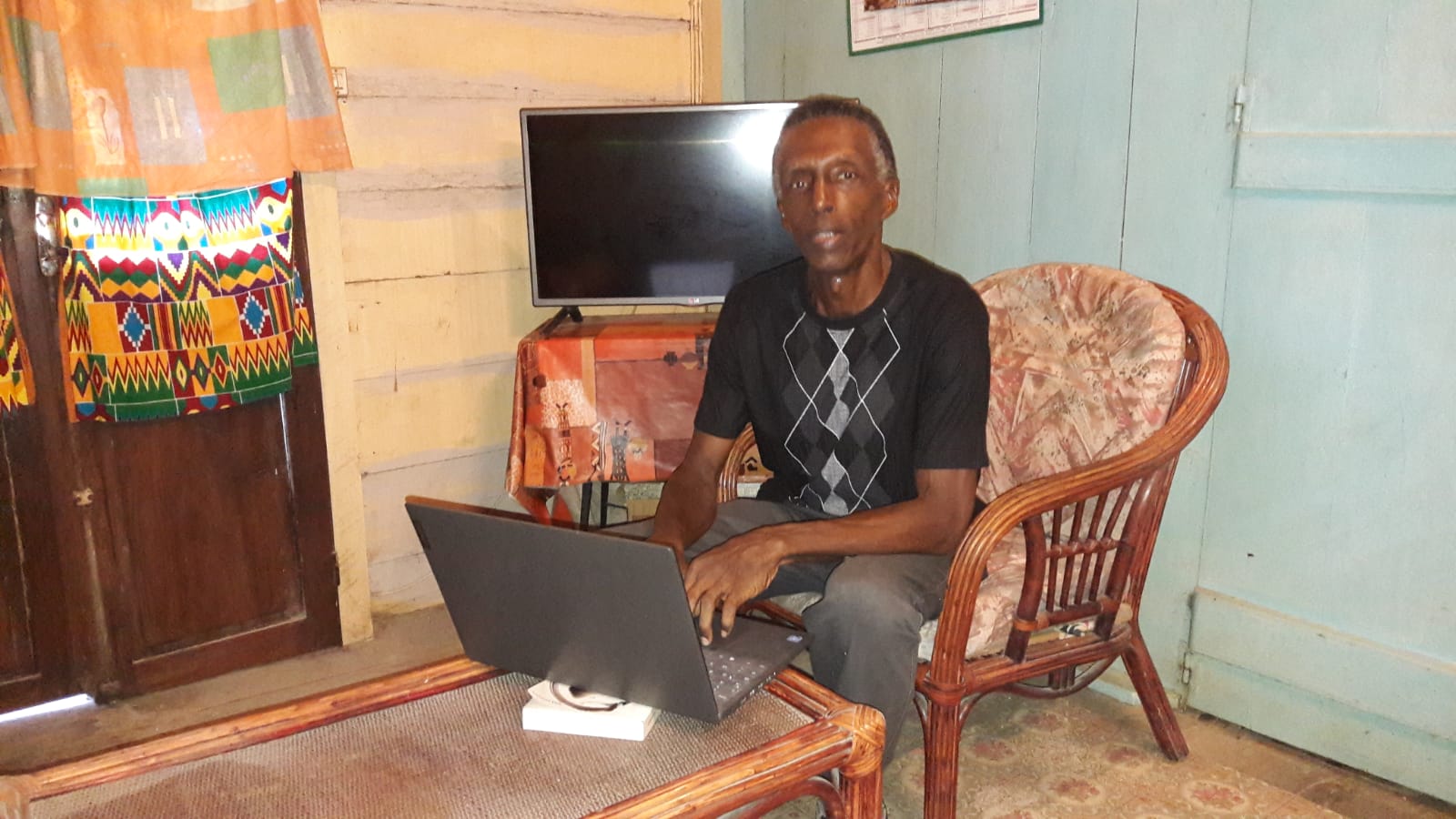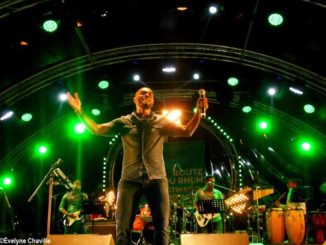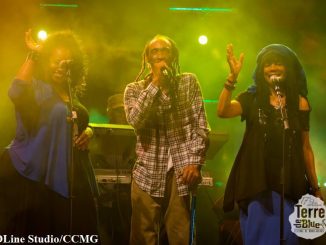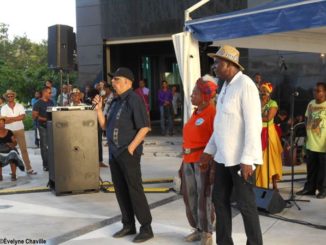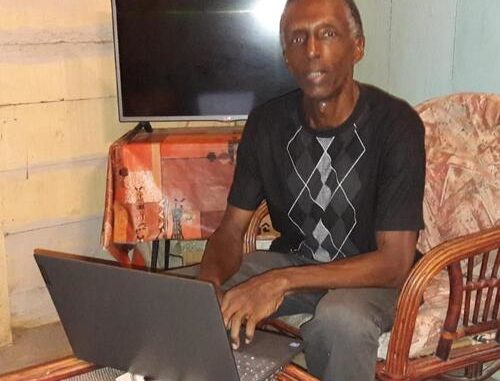
Last August, Guadeloupean writer Érick Marset published a collection of nine short stories entitled “Les Ondoyantes Dimensions de l’Être” on the digital platform ÉpopArt-Créations. He gave a long interview to Kariculture to present his work.
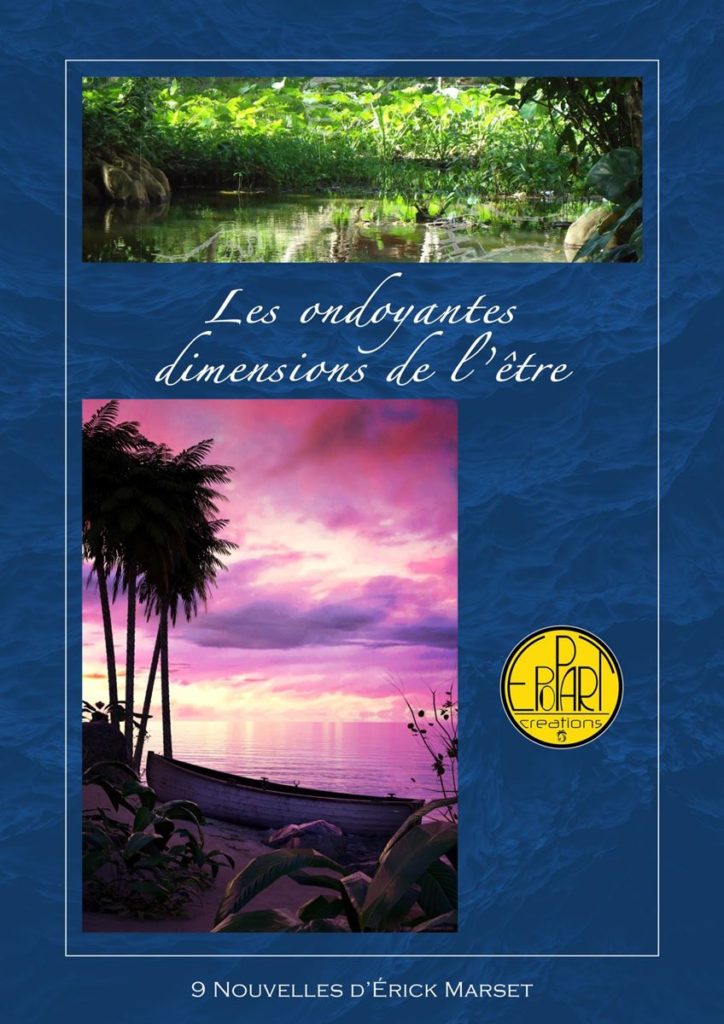
Kariculture : Last August, you published “Les Ondoyantes Dimensions de l’Être” on the digital platform ÉpopArt-Créations. Why this somewhat “philosophical” title?
Érick Marset : My short stories inspired me to do this, because they make you ask questions and wonder afterwards. It wasn’t easy to come up with the title because, as we all know, a collection is made up of several stories that may have the same underlying theme, but be different and independent of each other.
Themes can be similar or different. Sometimes, on rereading, you discover that what you’ve written or produced touches on areas that don’t necessarily reflect the original idea. Of course, there’s almost always an idea or ideas on which you base to create your story. But that same story can sometimes take us in a direction we hadn’t necessarily envisaged. Our environment can influence us positively or negatively, and we can also interact with it. Situations can arise that make us wonder about a scene we’ve witnessed, a piece of information we’ve received, a book or newspaper we’ve read, or an encounter we’ve made.
And over the past few years, things have been changing enormously in our world, for better or for worse. Upheavals seem to be underway regarding how we think about society, education, the economy, science… life itself. Some of us may have questions that they can’t express verbally, or choose not to do so, but they can also do so consciously or unconsciously through music, painting, cinema, dance, writing and more… Guadeloupe has lost, in a short period of time, people of great value such as Jean-Pierre Sainton, Gérard Lockel, Christian Lara and others, I think there are common questions about the meaning of life, what direction we are taking, and also where we started from, the point of departure, it also makes me think of the big bang theory. In the end, nothing is static. It moves, it evolves, there’s a transition…
Kariculture : In this collection of short stories, you deal with several themes (slavery, tradition, social classes, nature, drugs, love, etc.), how did you select them?
É. M. : Actually, I think they were selected naturally, in the sense that all these themes are part of the news, of our daily life for some. And then these subjects speak to me, challenge me, affect me. When I was talking about the environment, there’s always a relationship, an influence of this in relation to that. Sometimes, these themes can have a link between them, for example slavery and tradition.
Kariculture : Reading these different stories gives the impression of moving from one era to another, even if there are no dates. Did you want to portray the Guadeloupe of yesteryear and modern Guadeloupe? What was your inspiration? Did you have a favorite time to devote yourself to writing?
É. M. : It’s very nice to hear you say that. The feeling of moving from one era to another – it’s like being a time traveler – creates movement, life, in my opinion. Feeling it without a date is very interesting, because it leaves room for discovery, for analysis, you can ˮpenetrate ˮ into the story while feeling it. It’s essential to me that the reader doesn’t get bored, that my writing evokes things, makes people travel. He or she may not like it, which is understandable. We all have our own tastes, our own way of feeling things. We need a variety of opinions.
As I’ve already mentioned, stories are produced from an idea, a feeling or other things. But the story may sometimes take you down to a path you hadn’t necessarily defined at the beginning of writing. And the reader, in turn, may discover another facet of the story that you hadn’t considered. Now, with hindsight, I’m discovering other facets of my book, either by myself, or thanks to readers’ opinions. It’s an enrichment for me.
I don’t have any particular time to devote myself to writing ; as soon as I’m able to produce and feel comfortable, I get to work. Inspiration can happen anywhere and at any time; there are no real rules for me. Inspiration can be triggered by a lot of things, such as noise, music, reading, words spoken by a person, a conscious or unconscious event, a film, the wind blowing, trees, animals, any scene, silence…and other things, I don’t think there are really any limits.
Kariculture : How long did it take you to write this collection that includes 9 short stories?
É. M. : It’s hard to define the time of creation of the collection. Some stories were written over twenty years ago, others ten, one or two were produced five years ago… It’s hard to say. However, I can tell you that the decision to do this collection was taken less than a year ago. It can happen that you devote so much time to a writing project that you can surprisingly forget a creation date.
Kariculture : We would have liked to know more by reading stories like “Survivance” with Edmond and the famous spring he’s trying to preserve or “Sédo”, this being who seems to have supernatural powers or “Le son tambour” (The drum sound) with Mwango, this character who is a ka master and a sorcerer… Unfortunately, the story is short. Don’t you want to develop some of your short stories into novels?
É. M.: The story is essentially a short story. So there are short stories, very short stories and long stories. There is not really a strict rule. Many years ago, I had discovered a short story by an author that was almost fifty pages long. I was quite surprised by the format. Unfortunately, I can’t remember the author’s name. In my opinion, a short story is a snapshot, a small sequence or interval of time. This type of narrative is not intended to develop a story, unlike a novel. The latter allows you to “delveˮ into the characters, to have a denser story… The “nouvelle” (in French) is called a short story by Americans. Anglo-Saxons “consumeˮ short stories as well as novels. In France, it is not the same; the short story is rather the poor relation of literature. In Guadeloupe, we may have inherited this by force of circumstance. It’s true that when you’re used to reading only novels, it’s often difficult to take the short story for what it is, that is, a short narrative that can leave an action pending.
I plan to develop one of the short stories in the collection into a novel. For now, I’m not going to say which short story it is. This was planned long before the idea of making this new book.
Kariculture : Why did you choose to publish your 4th book also in digital format? Do you think that readers, especially in Guadeloupe, are now ready to buy an e-book and forget a little the printed format?
É. M. : I’ve stayed with the same publisher as my previous book, which was a novel. Nothing is perfect, but I consider the relationship is good. There’s no pressure. There’s no will to influence me in choosing the themes of my stories.
Are Guadeloupeans ready to buy an e-book? Are you targeting a particular age group, young people, or a group of people from all generations?
We don’t live in isolation from the rest of the planet. It’s clear that we have our habits, our “mès é labitid”, but in terms of technological, new information and communication technologies, it always takes a little time to adapt, and sometimes it’s a question of generations. Speaking of generations, there are some young people, and not only them, who have a strong tendency to essentially use their bank cards to pay for their purchases. Some even told me not to carry cash around. Now, is this a good thing in absolute terms? Only time will tell. Nevertheless, Guadeloupeans have a great ability to adapt to whatever comes their way, and they also have extraordinary potential, so we should not underestimate them. For my part, I don’t want paper books to disappear, I continue to read them. Cohabitation is quite possible with digital.We must not shout at the end of the world. There are also beliefs: in the 19th century, when the steam locomotive began to be democratized, doctors thought, for example, that women’s bodies were not designed to withstand speeds of 80 km/h, and they feared that their uteruses would be damaged or violently shaken under the effect of acceleration to reach this speed. They have since discovered that this was completely unfounded and ridiculous.
Coming back to the production format of writing, I have no desire to stop publishing anything in paper format. And then, we’ll see what the future will bring…
Kariculture : A television station in Guadeloupe refused to present your book because it is “digital”. Do you understand this “explanation”? It could have filmed you in front of a computer screen or with your smartphone in your hand, right? Do you think that some local media or journalists have not yet moved into the 21st century?
É. M. : The journalist from this channel was very cordial, and took the time to explain to me why it was not possible for me to present my e-book on TV. I took the time to listen to him. I thought his explanations were a bit heavy-handed. But I avoided really getting him into trouble by pointing out his inconsistencies. I didn’t want to be unpleasant. I understood that he had his own point of view, which seemed unshakeable. So, after a while of talking, I took my leave.
Do I think that some of our media and journalists have not yet moved into the 21st century? I listen to the radio, I read the newspapers, and I watched TV (mine is down.), I’m disappointed about the development of information, about the way things are presented by certain media. I walk in the streets, I meet people, I see them live. You know, these people, as I said, adapt to whatever comes their way. If you have the option to choose, or if you have several levels of choice, people are neither stupid nor naive, they will know the difference. So, I think it’s a question of levels of choice. Should people be given the opportunity to make their choice? Who is not ready or who doesn’t want things to evolve?
Kariculture : On Friday September 8, you presented your e-book at the “Bar à jeux de société” in Pointe-à-Pitre, how people welcomed you?
É. M. : By first introducing myself to the audience, I was able to generate interest in the author’s “originˮ regarding writing. I gave a kind of account of this history before moving on to the short stories. The audience is often curious to know what led the author to embark on the path of writing, to adopt this art in order to express himself, which is quite in the run of things. It wants to know the author’s background, his first production.
The audience was very receptive. It was very convivial, and there were great exchanges and honesty.
Some people who were still attached to reading paper books told me that, after meeting me, they were going to take the plunge and buy my collection of short stories in digital format. I was pleasantly surprised by this decision. It’s true that the format can be important and, as I’ve already said, this may require a short adaptation time. However isn’t the most important thing the story? In my opinion, the main thing is the interest in the various themes mentioned in the book, the way the story is developed, and also the reader’s desire to continue discovering the story, because he or she has a taste for it. If all that comes together, I can say I’m on the right track.
